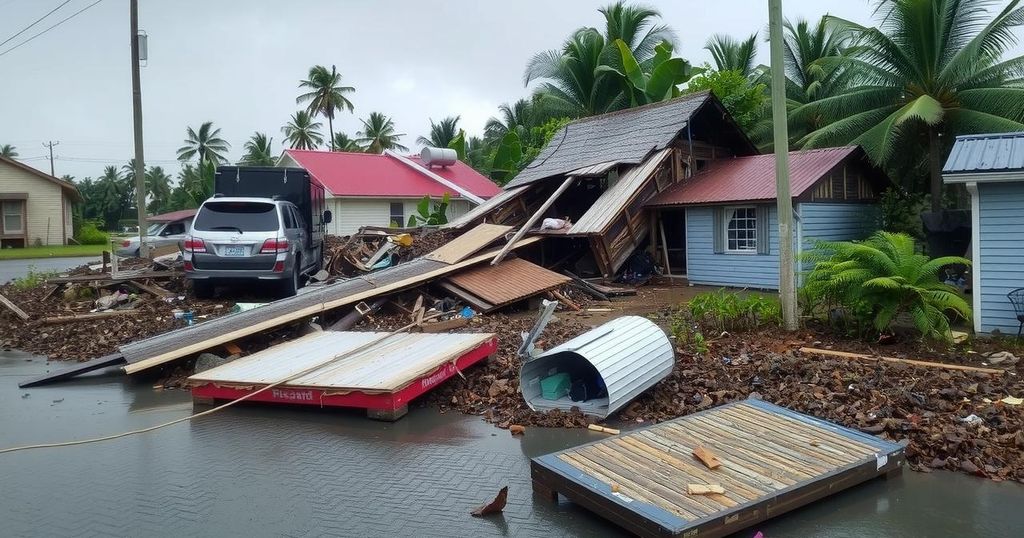Cyclone Chido has struck the French territory of Mayotte, with death toll estimates potentially reaching several hundred. Initial reports confirm at least 11 fatalities and over 250 injuries, as widespread destruction affects public infrastructure. Rescue efforts are underway, with significant international support mobilized for recovery efforts. Similar conditions are expected in nearby regions, exacerbating the humanitarian crisis caused by the cyclone.
The French territory of Mayotte is reeling from the devastating impact of Cyclone Chido, with initial reports indicating a death toll that could reach several hundred. Mayotte Prefect François-Xavier Bieuville noted that, given the cyclone’s intensity, the final count of fatalities could be as high as one thousand. Over 250 people have already been reported injured, while significant damage has been inflicted upon public infrastructure, including the airport. Rescue operations are ongoing, aided by units from France and its territories, as they endeavor to restore basic services to the local population, which resides in informal settlements particularly vulnerable to such disasters.
As the cyclone made landfall, widespread destruction occurred throughout Mayotte, affecting neighborhoods predominantly composed of metal shacks that are characteristic of the island. The cyclone generated violent winds exceeding 220 kilometers per hour, classifying it as a Category 4 cyclone. The aftermath has resulted in a humanitarian crisis, prompting international response efforts, including the establishment of an air and sea bridge for aid delivery.
Countries in the surrounding regions, such as Mozambique, are also grappling with cyclone damage. Authorities caution that flooding and landslides may necessitate further evacuations as the cyclone progresses inland. Given the historical context of recent climate-related disasters in the region, Cyclone Chido’s occurrence has reignited discussions about the growing intensity of cyclones due to climate change and the pressing need for global cooperation in addressing these humanitarian challenges.
Cyclone Chido hit Mayotte in the southwestern Indian Ocean, an area well-known for its vulnerability to tropical storms. The region has recently faced a succession of severe cyclones, causing immense destruction and loss of life. As one of France’s poorer territories, Mayotte lacks sufficient infrastructure and resources to adequately respond to disasters of such magnitude, which has prompted international assistance. The effects of climate change have exacerbated the frequency and severity of cyclones, influencing future humanitarian responses.
In conclusion, the aftermath of Cyclone Chido in Mayotte highlights the devastating effects of natural disasters on vulnerable populations. As rescue operations continue, it is crucial to focus on rebuilding efforts, restoring essential services, and preparing for future disasters. The tragic loss of life emphasizes the urgent need for programs addressing climate change and increasing international support for disaster-stricken regions.
Original Source: apnews.com






